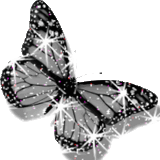Autism
Dr. Rismarini, SpA
Introduction
Autism is a behavioral syndrom of neurologic dysfunction
Characterized by impaired reciprocal social interaction, communication, impoverished imaginative activity, and markedly restricted repertoire of activities and interest
Epidemiology
Prevalence is 5-15 cases/10.000
3 – 4 times more frequent in boys
No predelection for any racial, ethnic, or socioeconomic group
Etiology
Etiology is unknown in most cases
Risk factors including :
Genetics
Brain disease (TORCH infections)
Dev. Brain abnormalities (microcephaly, hydrocephalus)
Metabolic diseases (PKU, MPS)
Postnatally acquired destructive disorder (Ensephalitis, Meningitis)
Lead encephalopathy
Neoplasm
Genetis disorder (Tuberous sclerosis, fragile X Syndrome)
Diagnosis
1. Impaired reciprocal social interaction (at least 2).
- Lack of awareness of feelings of others
- Failure to seek comfort when distressed
- Absent or impaired imitation
- Absent or abnormal social play
- Impaired ability to make peer friendships
Diagnosis
2. Impaired communication and imaginative activities (at least 1)
- Absent communication
- Abnormal nonverbal communication
- Absent imaginative activity
- Abnormal speech production
- Abnormal speech content
- Inability to initiate or sustain conversation
Diagnosis
3. Restricted repertoire of activities & interest (at least 1)
- Stereotiped body movements
- Preoccupationn with object
- Distress with environmental change
- Insistence on following routines
- Restricted range of interest
Differential Diagnosis
Hearing impairment
Developmental language disorder
Retts syndrome
Disintegrative psychosis
Schizophrenia
Undifferentiated mental retardation
Management
A. Educational behavioral management.
Special education communication skill & behavioral management
B. Medications.
- Risperidon, methylphenidate, pemoline
C. Support for families
Prognosis
Major determinant of prognosis are :
Presence or absence of an underlying dis. of the brain and its acceptability to treatment
Speech by age 5 years
Intelegence
Prognosis
5 – 10 % will become independent adults
25 % will show notabel developmental progress
65-70 % will continue to be substantially impaired and required a high level of going care
21 Januari 2010
Langganan:
Posting Komentar (Atom)

Tidak ada komentar:
Posting Komentar